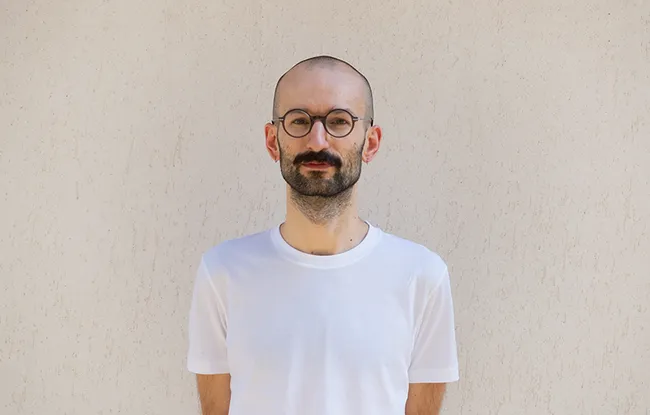Today, triple negative breast cancer affects around 15% of women who develop breast cancer in France, with 9,000 new cases detected each year. It is one of the most aggressive and challenging-to-treat forms of breast cancer.
Triple negative breast cancer often produces metastases in the lungs. And when the lungs are affected, this has serious repercussions. My goal is to understand how cancerous cells in the breast migrate to the lungs, in order to discover new therapeutic options to prevent it
explains Albertas Navickas, head of the RNA, Tumor Microenvironment and Metastasis team (CNRS UMR3348/University Paris-Saclay)
This metastatic phenomenon could depend on alternative mechanisms that have never before been studied, and which would be based on particular molecules, double-strand RNA. With the help of the grant from the prix Ruban Rose Avenir in the amount of €200,000, the aim of Albertas Navickas’ project is to reveal the exact role of double-strand RNA in the development of lung metastases from triple negative breast cancer.
Better understanding of this mechanism is needed in order to assess risk, but also to prevent recurrence.
► See the interview of Dr Albertas Navickas produced by the association Ruban Rose:
|
Several researchers from Institut Curie have previously received awards from the Ruban Rose association:
- Dr. Philippe Chavrier, head of the Membrane and Cytoskeleton Dynamics research team (CNRS UMR144 / Sorbonne university), laurate of the Grand prix Ruban Rose 2022 for his project on the development of invasive behavior of tumor cells, particularly in breast cancer.
- Dr. Eliane Piaggio, head of the Translational Immunotherapy research team (Inserm U932), laureate of the prix Ruban Rose Avenir 2022 for her project on the search for predictive markers of immunotherapy efficacy in patients with triple-negative breast cancer.
- Dr. Irène Buvat, director of the Laboratory of Translational Imaging in Oncology research unit (Inserm U1288), laureate of the prix Ruban Rose Avenir 2021 for her work combining imaging and artificial intelligence for early detection of breast cancer metastases.
- Dr. Elisabetta Marangoni, research engineer at the In vivo preclinical experiments platform, laureate of the prix Ruban Rose Avenir 2020 for her research project involving breast cancer xenografts taken from patients.
- Prof. François-Clément Bidard, medical oncology practitioner and head of the translational research group Circulating Cancer Biomarkers, laureate of the prix Ruban Rose Avenir 2019 for his work on circulating tumor cells and circulating tumor DNA (ctDNA), cancer markers, which help track the development of the disease via simple blood tests.
- Dr. Aura Carreira, head of the Genome Instability and Cancer Predisposition research team (CNRS UMR3348 / Paris-Saclay University), laureate of the prix Ruban Rose Avenir 2018 for her work on the biological function of the gene predisposing to breast and ovarian cancer: BRCA2.
- Prof. Alain Puisieux, Director of Institut Curie Research Center, laureate of the Grand prix Ruban Rose de la recherche 2018 for his work and his research program on breast cancer entitled “Role of the state of differentiation and cellular compliance in the early stages of mammary tumorigenesis.”
- Dr. Fatima Mechta-Grigoriou, director of the Cancer, Heterogeneity, Instability and Plasticity research unit (Inserm U830), laureate of the Grand prix Ruban Rose 2017 for her work on the effects of oxidative stress, which promotes the development of metastases but improves the response to certain chemotherapeutic agents (such as taxanes), and on the inhibition of the CXCR4/CXCL12 axis with the aim of improving the response to chemotherapy.
- Dr. Isabelle Fromantin, nurse researcher in the Wound and Scar Unit at Institut Curie, laureate of the prix Ruban Rose Qualité de Vie 2017 for her "KDOG" project, the objective of which is to evaluate the ability of trained dogs to identify breast cancer transcutaneously, with a view to a clinical study.
- Dr. Ivan Bièche, geneticist at the Institut Curie's Diagnostic and Theranostic Medicine Unit, laureate of the Grand prix Ruban Rose de la Recherche 2014 for his project on the identification of new targeted therapies in breast cancer using a large panel of xenografted human tumors.
- Lydie Wintz, health executive in the surgery department of the Institut Curie, laureate of the prix Ruban Rose Qualité de Vie 2014 for her project on the development of information tools for breast cancer patients on breast reconstruction.
- Dr. Anne-Vincent Salomon, head of the Diagnostic and Theranostic Medicine Unit at Institut Curie, laureate of the Grand Prix Ruban Rose 2012 for her genomic studies that have led to a fine classification of breast tumors and a better adaptation of treatments.
|
Learn more about the prix Ruban Rose
Awarded each year by the Ruban Rose association, the Ruban Rose prizes are intended to support the efforts of clinical or basic research, but also remarkable innovations and progress in such fields as screening techniques, reconstruction surgery, psychology and improvement of quality of life for women suffering from different forms of cancer, and particularly breast cancer.



